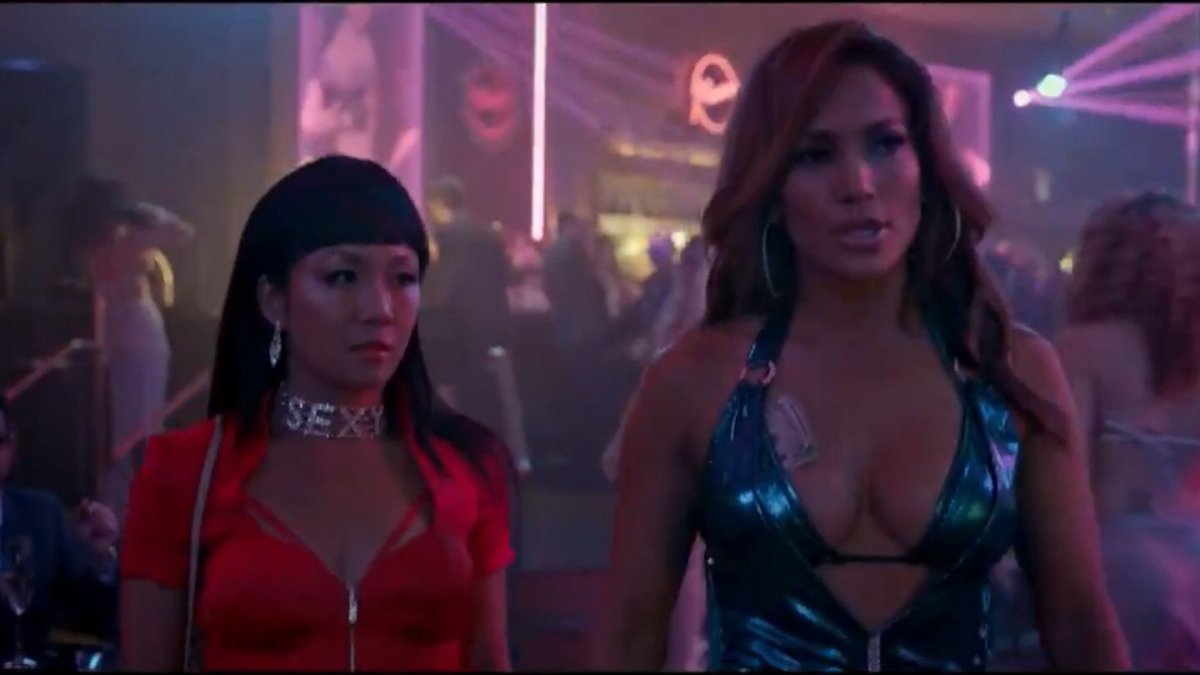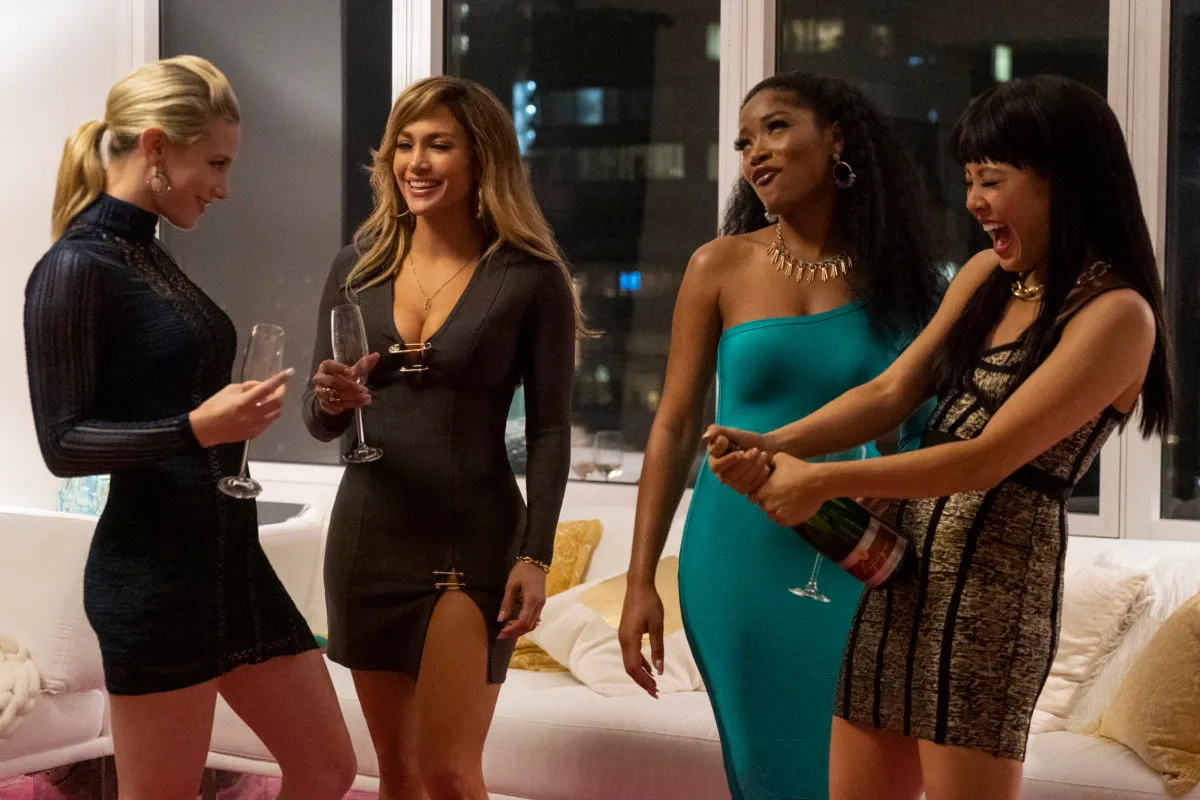If anyone was nervous for the release of Hustlers on Friday, it wasn’t the studios, it was actual sex workers and performers worried about another Hollywood film painting them as objects or broken toys. Though the film is based on a true story of exotic dancers who turned to drugging men and swindling them, as relayed in the viral The Hustlers at Scores story published in the New Yorker, many exotic dancers and other sex workers were still worried it wouldn’t be an accurate portray of their lives, or that it would paint all sex workers as predatory and greedy. Having seen the film, my viewpoint is that it’s a compassionate and nuanced portrayal of complicated people that make big mistakes, who just happen to be exotic dancers. We’ll have a full review up next week, but the accuracy and potential impact of the film is very much worth discussing now.
While the Hollywood version of sex work is getting major press and earning actresses Oscar buzz, real sex workers are shadowbanned from social media and endangered by FOSTA/SESTA. Given that climate, I can understand why sex workers would feel trepidation at the release of Hustlers. It’s disconcerting to see sex work celebrated on minute and condemned the next. It’s not as if Hollywood has a good history with how it portrays exotic dancers. Showgirls is infamous bad and manages to portray its sex workers as crazy, greedy, lecherous, murderous and ridiculous all at once – though, to be fair, that applies to nearly every character in the film, sex worker or not. And after becoming the highest paid actress in Hollywood for the role, Striptease was a bomb that tanked Demi Moore’s entire career.
One big difference between Hustlers and these earlier films it that Hustlers is an excellent film. Setting aside it’s social context, Hustlers is fantastically acted, shot and produced, with well-earned emotional highs, great laughs and a career best performance from Jennifer Lopez that should absolutely earn her all the awards. It’s a box office hit, and it’s great to see a film that portrays sex workers as (flawed) people get so much praise from critics audiences.
It’s a good movie, but is it a good portrayal of sex work? That’s a complicated question. Movies are never one-hundred percent accurate portrayals of anything. The Lion King isn’t an accurate portrayal of life on the savannah and The Devil Wears Prada has little to do with actual journalism. even true life stories are dramatized and sanitized. That said, I think the way Hustlers portrays the ins and out of life as an exotic dancer is realistic and compassionate. We see how these women can be exploited by club owners and objectified by clients, but we also see how they support and care for one-another. Hustlers neither fetishizes nor condemns sex work, which is a hard line to walk, especially in nine-inch heels. The filmmakers had help maintaining accuracy in the form of Jacqueline France, also known as Jacq The Stripper who served as performer and consultant in the film and it shows.

Writer and director Lorene Scafaria is a master of the female gaze, and manages to show both the glamour and excitement of the world these women inhabit while also exploring the drab and often funny realities behind the scenes of their fictionalized strip club, this however is not the real focus of the film. The 2008 financial crash changes everything for the characters and it’s that and a desire to provide for her young child that pushes Destiny (Constance Wu) back into the orbit of Ramona (Jennifer Lopez) and towards the criminal scheme at the center of the film. Themes of class, motherhood and longing for connection all inform the film in complex ways.
Hustlers doesn’t portray all sex workers as predators or criminals, and treats their crimes with more seriousness and judgement than other caper or con focused films like Ocean’s Eight (Or Eleven. Or Thirteen) or Catch Me If You Can. We know exactly why these women commit these crimes, and sometimes we root for them victimizing gross Wall Street Fat cats; but we also see the perspective of their victims and the women’s moral conflict over their actions. The film can’t be accused of character assassination against all strippers, in part because it is based on a real incidents, but also because none of these women come off as monsters, but rather complex heroes of their own stories.
This is a film based on a true story, and it’s in many ways very accurate to the original article, but in some ways more sympathetic. In particular Lopez’s character, Ramona, comes off far kinder and nuanced than her real life counterpart, Samantha Barbash does in “The Hustlers at Scores.” Perhaps that’s due to the writing, or simply the casting of Lopez who radiates confidence and charm. The film is framed by an interview with Destiny, the stand in for real-life interviewee Roselyn Keo and often directly quotes the article, but it also provides context and invites us to question Keo/Destiny as an unreliable narrator.
Real-life sex workers and advocates have begun to weigh in on the film, with the same mixed opinions as any audience might have. Some applaud the accuracy, and others appreciate the nuanced portrayal of sex workers. Others however, question some of the less savory elements of the stories and their implications:
Because I’m Russian, I was pretty disgusted by the scene where they show Russian strippers.
They’re depicted as being catty, nasty and there’s a strong implication that Russian dancers are bringing the club down and making it sleazy because they’re offering “$300 blowjobs.”
— YEVGENIYA (in Thailand) (@YEVG3NIYA) September 15, 2019
Personally, I think the film lands squarely on the side of the women. Scafaria manages to tell a story of sex workers committing crimes without telling the audience that all sex workers are criminals; that life often comes down to exploiter and the exploited and anyone can be either, or sometimes both. The fact that the media is even having conversations about sex work now is positive, but of course it doesn’t mean much if we continue to marginalize and endanger real sex workers while simultaneously cerebrating them on screen. Hustlers is a great film to watch, but perhaps even better as the start of an important conversation.
(Image: Barbara Nitke/STX Films)
Want more stories like this? Become a subscriber and support the site!
—The Mary Sue has a strict comment policy that forbids, but is not limited to, personal insults toward anyone, hate speech, and trolling.—









